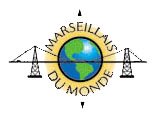Sarkozy must listen to Ireland
By Eamon Gilmore
Published: July 18 2008 12:24 Last updated: July 18 2008 12:24
Even before French President Nicolas Sarkozy arrives in Dublin on Monday, his visit is fraught with difficulties. Comments in advance of his trip suggesting that Ireland should have another referendum on the Lisbon treaty quickly are exactly what pro-Europeans in Ireland did not want to hear.
They suggest that the president of the European Council shares in an emerging European view of the Irish No vote that is neither accurate nor helpful and that, if left unchallenged, has the potential to steer the European Union into an even great imbroglio that the one in which it already finds itself. Three assumptions being made about the Irish vote are particularly problematic.
The first is the notion that the result of the Irish referendum is essentially an Irish problem, rather than a European one. Not so. Ireland is the only country whose constitution requires a popular vote on the treaty. So, EU leaders would do well to pay close attention to what Ireland's voters are telling them. Of course, the Irish electorate is only a tiny proportion of Europe's population, but so far, ours is the only expression of popular will on the Lisbon treaty. As I pointed out to my fellow leaders within the party of European Socialists at our pre-summit meeting in Brussels, a significant number of European countries would find themselves in the same position as Ireland, if they were to hold plebiscites on the treaty.
The Lisbon treaty is supposed to be about creating the architecture for a new EU. As a community of states founded on the principles of democracy, it would cause itself untold damage if it were to ignore the results of the Irish poll, or in some manner attempt to sidestep the verdict of Irish voters. This is particularly true, precisely because Ireland is a small member state. Again, it would not augur well for the Lisbon treaty architecture if the views of a small state were to be discounted in the very establishment of the new structures.
So, the EU needs to take on board what the Irish voters are saying, which means dropping erroneous assumption number two i.e, that the Irish who have gained so much from EU membership have suddenly become eurosceptics. This simply is not true, as evidenced by the results of several opinion polls in the immediate aftermath of the Lisbon vote. The Irish remain convinced of the merits of EU membership and of its importance to our economy, including
89 per cent of those who voted No. This chimes with my own experience of weeks of hard campaigning for a Yes vote. Indeed, I would go further and say that the Irish are proud of their engagement with the European project and determined to be at the centre of it. Eurobarometer polls taken over many years confirm this.
Of course, there were domestic factors involved in the referendum vote.
There always are. The Irish electorate, however, has a long history of making sophisticated distinctions between issues and there is no reason to suppose that it did not do so on this occasion. Moreover, while there were many lies told during the campaign by the No side, the same lies have been told at every European referendum held in Ireland since 1972. Some of them gained traction with the electorate during the campaign and others did not.
The question that Europe must ask, therefore, is why a strongly pro-European population was willing to give weight to some of those arguments on this occasion.
Taxation and neutrality stand out as the areas where some of the scaremongering did have an impact. In the case of taxation, while the treaty provisions are clear, noises from Paris and Brussels about pushing ahead with the combined common corporate tax base, possibly through enhanced co-operation, were decidedly unhelpful.
These might not have mattered so much if we had been debating a treaty that was clearly focused on solving a concrete problem, connected to the daily lives of the electorate. While the treaty contains a series of important reforms, which I support, it has no such "unique selling point". In that context, the concern that emerged in Ireland about the loss of a permanent seat at the Commission is readily understandable. In effect voters saw this as undermining a previous guarantee that someone with a direct and recognisable connection to their concerns would have a powerful place in the Brussels bureaucracy.
Erroneous assumption number three, therefore, is that this problem can be resolved by scribbling out some fresh declarations, or some other legal device, followed quickly by another Irish referendum. That approach is fraught with risk, long-term and short-term, both for the EU itself and for Ireland's vital national interest in being at the heart of the European project.
The EU urgently needs to get past its present phase of institutional navel-gazing and get on with delivery. As the history of the European project demonstrates, Europe has made its most significant strides when it has strongly focused on a concrete agenda, rather than when talking about itself. Paradoxically, part of the solution to the Irish problem would be strong messages about concrete delivery on real issues.
Clearly, Ireland has a responsibility to contribute to the solution to the present impasse, but, I repeat, this is a European problem as well as an Irish one. When a proud and confident people, who are strongly pro-European and want to be at the centre of the European project, throw up a road-block to a new treaty, Europe's leaders would be very unwise to try to go around it. President Sarkozy must actually listen to what is actually being said by the Irish electorate.
The writer is leader of the Irish Labour party
By Eamon Gilmore
Published: July 18 2008 12:24 Last updated: July 18 2008 12:24
Even before French President Nicolas Sarkozy arrives in Dublin on Monday, his visit is fraught with difficulties. Comments in advance of his trip suggesting that Ireland should have another referendum on the Lisbon treaty quickly are exactly what pro-Europeans in Ireland did not want to hear.
They suggest that the president of the European Council shares in an emerging European view of the Irish No vote that is neither accurate nor helpful and that, if left unchallenged, has the potential to steer the European Union into an even great imbroglio that the one in which it already finds itself. Three assumptions being made about the Irish vote are particularly problematic.
The first is the notion that the result of the Irish referendum is essentially an Irish problem, rather than a European one. Not so. Ireland is the only country whose constitution requires a popular vote on the treaty. So, EU leaders would do well to pay close attention to what Ireland's voters are telling them. Of course, the Irish electorate is only a tiny proportion of Europe's population, but so far, ours is the only expression of popular will on the Lisbon treaty. As I pointed out to my fellow leaders within the party of European Socialists at our pre-summit meeting in Brussels, a significant number of European countries would find themselves in the same position as Ireland, if they were to hold plebiscites on the treaty.
The Lisbon treaty is supposed to be about creating the architecture for a new EU. As a community of states founded on the principles of democracy, it would cause itself untold damage if it were to ignore the results of the Irish poll, or in some manner attempt to sidestep the verdict of Irish voters. This is particularly true, precisely because Ireland is a small member state. Again, it would not augur well for the Lisbon treaty architecture if the views of a small state were to be discounted in the very establishment of the new structures.
So, the EU needs to take on board what the Irish voters are saying, which means dropping erroneous assumption number two i.e, that the Irish who have gained so much from EU membership have suddenly become eurosceptics. This simply is not true, as evidenced by the results of several opinion polls in the immediate aftermath of the Lisbon vote. The Irish remain convinced of the merits of EU membership and of its importance to our economy, including
89 per cent of those who voted No. This chimes with my own experience of weeks of hard campaigning for a Yes vote. Indeed, I would go further and say that the Irish are proud of their engagement with the European project and determined to be at the centre of it. Eurobarometer polls taken over many years confirm this.
Of course, there were domestic factors involved in the referendum vote.
There always are. The Irish electorate, however, has a long history of making sophisticated distinctions between issues and there is no reason to suppose that it did not do so on this occasion. Moreover, while there were many lies told during the campaign by the No side, the same lies have been told at every European referendum held in Ireland since 1972. Some of them gained traction with the electorate during the campaign and others did not.
The question that Europe must ask, therefore, is why a strongly pro-European population was willing to give weight to some of those arguments on this occasion.
Taxation and neutrality stand out as the areas where some of the scaremongering did have an impact. In the case of taxation, while the treaty provisions are clear, noises from Paris and Brussels about pushing ahead with the combined common corporate tax base, possibly through enhanced co-operation, were decidedly unhelpful.
These might not have mattered so much if we had been debating a treaty that was clearly focused on solving a concrete problem, connected to the daily lives of the electorate. While the treaty contains a series of important reforms, which I support, it has no such "unique selling point". In that context, the concern that emerged in Ireland about the loss of a permanent seat at the Commission is readily understandable. In effect voters saw this as undermining a previous guarantee that someone with a direct and recognisable connection to their concerns would have a powerful place in the Brussels bureaucracy.
Erroneous assumption number three, therefore, is that this problem can be resolved by scribbling out some fresh declarations, or some other legal device, followed quickly by another Irish referendum. That approach is fraught with risk, long-term and short-term, both for the EU itself and for Ireland's vital national interest in being at the heart of the European project.
The EU urgently needs to get past its present phase of institutional navel-gazing and get on with delivery. As the history of the European project demonstrates, Europe has made its most significant strides when it has strongly focused on a concrete agenda, rather than when talking about itself. Paradoxically, part of the solution to the Irish problem would be strong messages about concrete delivery on real issues.
Clearly, Ireland has a responsibility to contribute to the solution to the present impasse, but, I repeat, this is a European problem as well as an Irish one. When a proud and confident people, who are strongly pro-European and want to be at the centre of the European project, throw up a road-block to a new treaty, Europe's leaders would be very unwise to try to go around it. President Sarkozy must actually listen to what is actually being said by the Irish electorate.
The writer is leader of the Irish Labour party
Published by the Financial Times









Aucun commentaire:
Enregistrer un commentaire